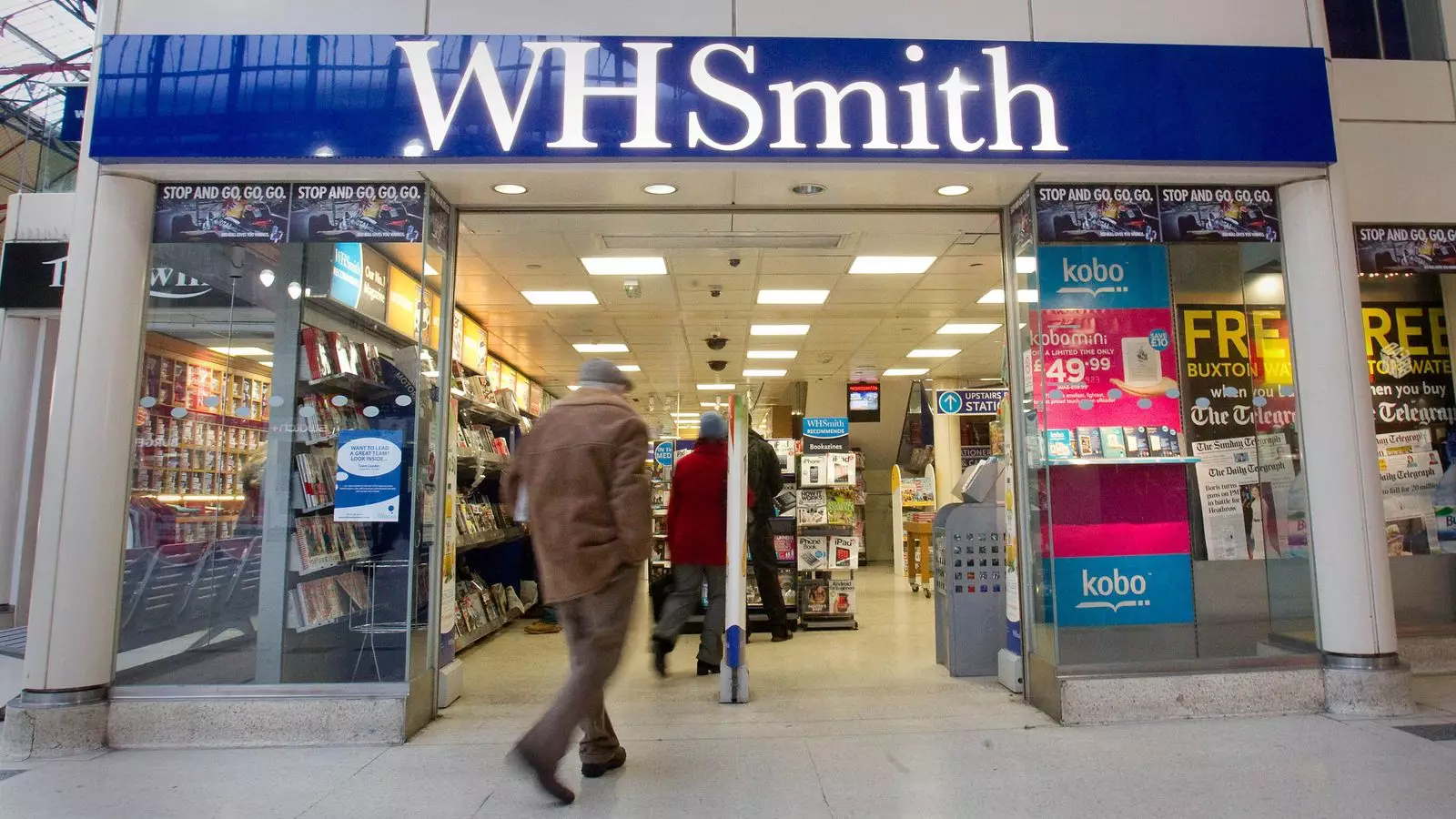WH Smith, a longstanding name in British retail, is reportedly in discussions to divest its entire high street business, a momentous decision that marks the end of an era for the company and the British retail landscape. Founded over 230 years ago by Henry Walton Smith and his wife, Anna, the company initially opened its doors in central London’s Little Grosvenor Street in 1792. Over the centuries, WH Smith became synonymous with bookshops, stationery, and, more recently, travel retail. However, recent developments suggest the company is pivoting sharply away from its historical roots, reflecting broader changes in consumer behavior and the retail industry.
As it stands, WH Smith operates around 500 high street stores, employing approximately 5,000 individuals across the UK. This division has traditionally focused on selling books, greeting cards, and stationery. However, it has struggled to remain competitive in a rapidly evolving retail environment, where increasing online shopping and the emergence of new retail formats have altered consumer preferences. The company’s high street arm recorded little growth, with operating profits stagnating at £32 million in the last fiscal year.
In stark contrast, WH Smith’s travel retail division, which includes around 600 stores across airports, train stations, and hospitals, has seen remarkable growth. This division has benefited significantly from higher profit margins and a diversified product offering, including food, drinks, and electronic items. In fact, travel retail now generates a staggering 75% of WH Smith’s revenue and contributes 85% of its profits, spotlighting the company’s shift in focus towards more lucrative segments of the retail market.
The Sale Process and Expected Implications
The desire to sell the high street business appears to be driven by a strategic repositioning, aimed at streamlining operations and focusing on the more profitable travel retail segment. To facilitate this potential sale, WH Smith has engaged Greenhill, a financial advisory firm, to manage the process, suggesting the seriousness and urgency behind this strategic move. An announcement regarding the negotiations is anticipated soon, and the stock market will likely react strongly, given WH Smith’s market capitalization of nearly £1.5 billion.
This move will undoubtedly raise questions about the future of the high street in the UK. With traditional retailers like BHS and Debenhams already having exited the physical retail sphere in recent years, WH Smith’s potential departure from the high street highlights the challenges faced by brick-and-mortar businesses. Reports indicate that approximately 15 additional WH Smith stores are set to close this year as part of an annual rationalization, further indicating the company’s shift away from its traditional retail model.
Analysts suggest that investors may view the potential sale favorably, seeing it as a decisive step towards improving profitability and efficiency. Chief Executive Carl Cowling seems poised to refocus the company’s identity purely within the travel sector, which may stabilize WH Smith’s financial outlook in what has been an unpredictable retail environment. The high street business’s stagnant performance has long raised concerns among stakeholders, so a shift toward the higher-margin travel segment could yield greater financial health in the long run.
WH Smith’s travel retail division has also made strides internationally, expanding prominently in the United States. This strategic growth trajectory demonstrates the company’s intent to leverage the lucrative aspects of the travel industry. As the travel sector rebounds post-pandemic, WH Smith stands at the forefront to capitalize on this upswing.
The potential sale of WH Smith’s high street business could signal a transformative change not only for the company itself but also for the broader British retail landscape. As WH Smith navigates these pivotal discussions, the impact of this shift will resonate across the industry, particularly as competition intensifies and consumer expectations evolve. For the company, the challenge will be to ensure a smooth transition while maintaining brand value and customer loyalty, even as it transforms its focus away from the storied high street that has been its hallmark for centuries.


Leave a Reply